Climate Negotiation
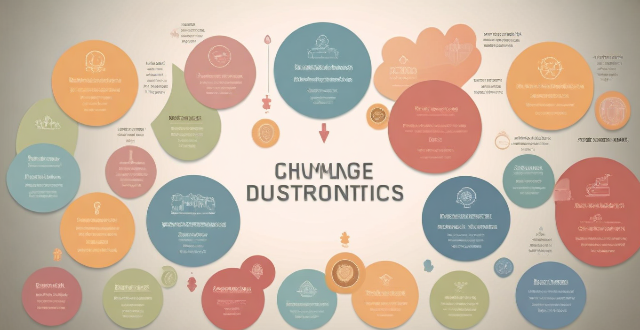
How do climate change negotiations tackle the issue of climate justice ?
Climate change negotiations address the issue of climate justice by recognizing the disproportionate impacts on vulnerable populations, promoting equitable access to resources and technologies, adhering to the principle of common but differentiated responsibilities, ensuring inclusivity in negotiation processes, addressing loss and damage, promoting sustainable development, setting long-term goals and ambitions, and maintaining accountability. These efforts aim to create a more equitable and resilient global response to the challenges posed by climate change.

What is the role of non-governmental organizations (NGOs) in climate change negotiations ?
Non-Governmental Organizations (NGOs) play a pivotal role in climate change negotiations by advocating for action, representing civil society, providing expertise, and facilitating collaboration. They raise public awareness about the urgency of climate change and lobby for aggressive actions against it. NGOs also bridge gaps in negotiations by representing affected communities, enhancing transparency, and holding governments accountable. Their research and data analysis support evidence-based policies, while their technical expertise helps shape practical solutions. Additionally, NGOs facilitate dialogue and partnerships between stakeholders, promoting inclusive decision-making processes. Overall, NGOs are essential participants in achieving meaningful progress in addressing climate change.

What is the significance of greenhouse gas emissions targets in climate change negotiations ?
Greenhouse gas emissions targets are vital for climate change negotiations as they set clear goals, promote international cooperation, have economic implications, protect the environment, and ensure accountability. These targets help countries measure progress, hold each other accountable, and achieve necessary reductions to prevent catastrophic climate change.

Can I negotiate prices at a sample sale ?
Negotiating prices at a sample sale is uncommon but possible under certain conditions. Sample sales aim to clear out inventory, often at discounted rates. Challenges to negotiation include fixed pricing, high demand, and already reduced prices. Opportunities for negotiation might arise when buying multiple items or if an item has a flaw. Approach negotiations politely and be ready to accept the original price. Alternative strategies include looking for coupons or waiting for deeper discounts towards the end of the sale.

What role do multilateral organizations play in promoting climate cooperation ?
Multilateral organizations are crucial in promoting climate cooperation by facilitating international dialogue, negotiation forums, and information sharing. They also develop strategies and policies to address climate change, identify priority areas for action, and implement policies and programs. These organizations support national governments and collaborate with NGOs and other stakeholders to achieve common goals. Their work is essential in shaping our collective response to climate change.

How do economists assess the costs and benefits of climate change negotiations ?
Economists use a cost-benefit analysis framework to assess the economic implications of climate change negotiations, considering various factors and uncertainties to inform policymakers about the economic implications of different strategies.
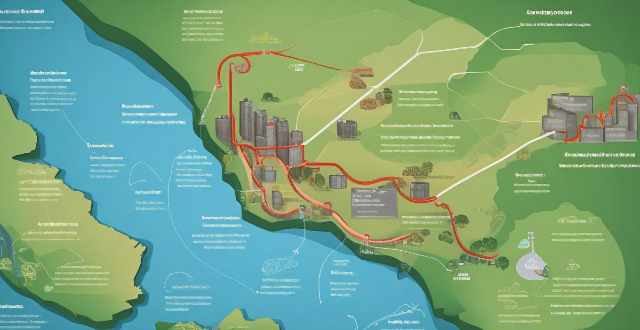
How do developed and developing countries differ in their stance on climate change negotiations ?
The article discusses the differences in stance on climate change negotiations between developed and developing countries. Developed countries view climate change as an urgent issue that requires immediate action and are willing to take steps to reduce their carbon footprint, including investing in renewable energy sources and sustainable practices. They also acknowledge their historical responsibility for contributing to greenhouse gas emissions and are financially capable of investing in climate change initiatives. On the other hand, developing countries prioritize economic growth and development over immediate climate action and emphasize the importance of fairness and equity in negotiations. They focus on adapting to the impacts of climate change and building resilience against its effects, seeking financial support from developed nations to help them transition to low-carbon economies and implement adaptation measures. The article concludes that finding common ground between these differing perspectives will be crucial for effective global cooperation in addressing climate change challenges.

How do climate change negotiations affect global trade and economic systems ?
Climate change negotiations play a crucial role in shaping global trade and economic systems. These negotiations aim to find solutions to the challenges posed by climate change, such as reducing greenhouse gas emissions, promoting renewable energy sources, and protecting biodiversity. The outcomes of these negotiations have far-reaching implications for international trade, investment, and economic development. In this article, we will explore how climate change negotiations affect global trade and economic systems. One of the key impacts of climate change negotiations on international trade is the imposition of tariffs and subsidies on goods and services that contribute to climate change. For example, countries may impose higher tariffs on imported goods that are produced using high levels of carbon emissions or other environmentally harmful practices. Similarly, governments may provide subsidies to domestic industries that adopt sustainable practices or invest in renewable energy technologies. These measures can create trade barriers and distort market competition, affecting global trade patterns. Another way in which climate change negotiations can influence international trade is through the implementation of carbon pricing mechanisms, such as carbon taxes or cap-and-trade systems. These mechanisms aim to internalize the external costs of carbon emissions by making polluters pay for their emissions. As a result, companies that rely heavily on fossil fuels or produce high levels of emissions may face increased costs, making their products less competitive in global markets. On the other hand, companies that invest in low-carbon technologies or adopt sustainable practices may gain a competitive advantage. Climate change negotiations often lead to the adoption of stricter environmental standards and regulations at both national and international levels. These standards can affect international trade by creating compliance costs for exporters and importers. For instance, companies that export goods to countries with stringent environmental regulations may need to invest in cleaner production processes or face penalties for non-compliance. Similarly, importers may prefer to source goods from suppliers that meet certain environmental standards, affecting trade flows and market access. Climate change negotiations also have significant implications for investment and economic development. As countries commit to achieving ambitious climate targets, there is an increasing demand for green finance and investment in sustainable projects. This can create new opportunities for investors and businesses that focus on renewable energy, energy efficiency, and other low-carbon sectors. However, it can also lead to capital flight from traditional fossil fuel industries, affecting economies that rely heavily on these sectors. Climate change negotiations often include provisions for technology transfer and innovation cooperation between developed and developing countries. This can help bridge the gap between countries with different levels of technological capabilities and promote sustainable development worldwide. By facilitating the transfer of clean energy technologies and supporting research and development efforts, climate change negotiations can foster economic growth and job creation in emerging markets. Finally, climate change negotiations address the urgent need for adaptation financing and support for vulnerable communities affected by climate change. This includes funding for infrastructure improvements, disaster risk reduction, and other measures that help countries adapt to changing climate conditions. While these efforts are essential for protecting human lives and livelihoods, they also represent significant economic opportunities for businesses involved in climate resilience and adaptation services. In conclusion, climate change negotiations have far-reaching implications for global trade and economic systems. By imposing tariffs and subsidies, implementing carbon pricing mechanisms, setting environmental standards, promoting green finance and investment, facilitating technology transfer and innovation, and providing adaptation financing and support, these negotiations shape the future direction of international trade and economic development. As we continue to grapple with the challenges posed by climate change, it is crucial for policymakers, businesses, and civil society to work together to ensure that our responses to this global challenge are aligned with our collective goals for sustainable prosperity.
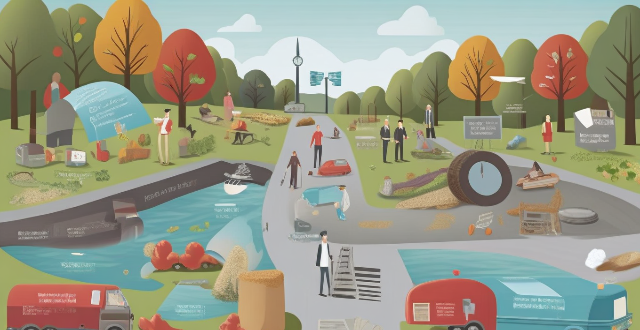
What are the implications of climate change negotiations for future generations ?
The implications of climate change negotiations for future generations are significant and multifaceted, affecting various aspects of life, including the environment, economy, society, and politics. Effective negotiations can lead to preserved natural ecosystems, mitigation of extreme weather events, job creation in renewable energy sector, reduction in energy costs, improved public health, enhanced quality of life, global cooperation, and leadership and innovation. These benefits highlight the importance of prioritizing the interests of future generations in climate change negotiations to ensure a sustainable and equitable world for all.
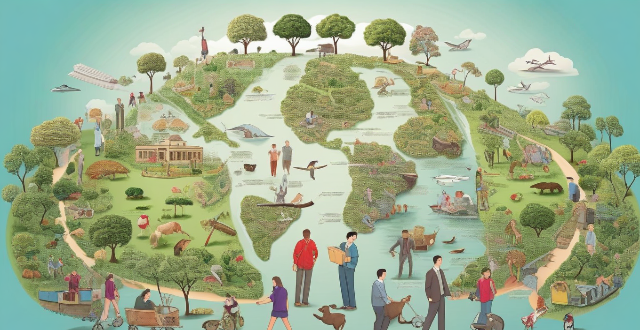
How do developing countries participate in international climate agreements ?
Developing countries play a crucial role in the global effort to combat climate change. Their participation in international climate agreements is essential for achieving a sustainable future for all nations. This article discusses how developing countries can engage with these agreements and contribute to global climate action by prioritizing education and awareness, seeking technical assistance, accessing financial and technological support, ensuring inclusivity and representation, building capacity through institutional strengthening and training programs, and engaging in collaboration and partnerships. By addressing these key points, developing countries can play a significant role in shaping global climate policy and contributing to a more sustainable future for our planet.

What are the challenges faced by organizers of international climate summits ?
Organizing international climate summits involves navigating diplomatic, economic, scientific, social, logistical, and legal challenges. Diplomatically, achieving consensus among diverse nations is crucial, as is ensuring political will for action. Economically, sufficient funding must be allocated, and disparities between wealthy and less-resourced nations addressed. Scientifically, accurate data collection and technology transfer are key. Socially, public awareness and education are vital, along with respecting cultural differences. Logistically, selecting venues and coordinating events is complex. Legally, creating fair agreements and ensuring compliance is essential. Overcoming these challenges enables effective global responses to climate change.

In what ways can developing countries participate effectively in global climate governance ?
**How Developing Countries Can Effectively Participate in Global Climate Governance** Developing countries are pivotal in global climate governance due to their disproportionate impact from climate change. Their effective participation can be achieved through several strategies: 1. **Capacity Building**: This involves enhancing educational programs to raise climate awareness and training local experts. It also includes investing in sustainable infrastructure and establishing research institutions. 2. **Policy Integration**: Countries should enact climate-related legislation, set emission reduction targets, and ensure policy alignment across different sectors while engaging stakeholders. 3. **Finance and Investment**: Access international and domestic funds for climate action, and make smart investments in renewable energy and sustainable agriculture. 4. **Technology Transfer and Innovation**: Developing countries should form technology partnerships, create exchange platforms, and encourage local innovation through R&D and incentives. 5. **Participation in International Negotiations**: They should prepare well for negotiations, build coalitions, advocate for their interests, and use forums for dialogue at international conferences. Through these strategies, developing countries can not only protect themselves but also significantly contribute to the global fight against climate change.

Can international cooperation help mitigate climate-related conflicts ?
The text discusses how climate change can exacerbate conflicts and the role of international cooperation in mitigating these impacts. It outlines various challenges posed by climate change, such as water scarcity, food insecurity, natural disasters, and economic instability, and how they can lead to conflicts. The text then explores the potential roles of international cooperation, including diplomacy, technology transfer, financial support, education, and capacity building. It also highlights challenges to achieving effective international cooperation, such as political will, economic disparities, and cultural differences. Finally, the text concludes that international cooperation is essential in addressing climate-related conflicts and that collaborative efforts can lead to a more resilient and equitable world.

How does climate information sharing help in mitigating climate change ?
Climate information sharing is vital for mitigating climate change by enabling informed decision-making, raising public awareness, supporting research and innovation, promoting international cooperation, facilitating adaptation strategies, and leveraging technology. It empowers governments, businesses, communities, and individuals to take actions that reduce greenhouse gas emissions and adapt to the changing climate.
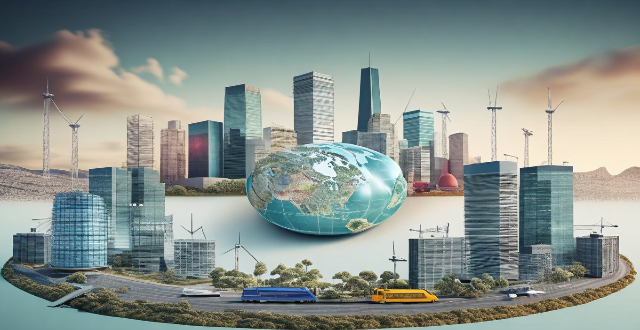
What is climate financing and why is it important for combating climate change ?
Climate financing is crucial for mitigating climate change by funding initiatives that promote renewable energy, sustainable infrastructure, and adaptation to climate impacts. It enables international cooperation, drives innovation, supports policy development, and encourages private sector participation. Furthermore, it contributes to achieving global goals and enhances public awareness about climate issues.

How can climate financing be used to mitigate and adapt to climate change ?
Climate financing is a key mechanism for both mitigating and adapting to the effects of climate change. It involves funding initiatives such as renewable energy projects, green transport, energy efficiency improvements, and research into cleaner technologies for mitigation. For adaptation, it supports infrastructure resilience, agricultural adjustments, health system strengthening, and community-based strategies. International cooperation through global climate funds and technology transfer further enhances the impact of climate finance. Collaboration among various stakeholders is crucial to effectively utilize climate finance for a sustainable future.

How do climate predictions account for natural climate variability ?
Climate predictions account for natural climate variability by incorporating natural drivers, using past climate records, ensemble modeling, focusing on long-term trends, assessing uncertainties, scenario analysis, and peer review and revision.

What are the implications of ignoring the views of climate skeptics on climate policy ?
Ignoring climate skeptics' views can lead to lack of diversity in thought, potential for misinformation, loss of public trust, opportunity costs, and polarization. Policymakers should consider diverse perspectives and engage with all stakeholders for effective solutions.

How can we differentiate between legitimate climate science and the opinions of climate skeptics ?
This article provides guidance on how to differentiate between legitimate climate science and the opinions of climate skeptics. It emphasizes the importance of looking for peer-reviewed research, checking the source of information, evaluating the evidence, considering the motives of those making claims, and consulting experts in the field. By following these guidelines, individuals can make informed decisions about climate change and contribute to efforts to address this critical issue.
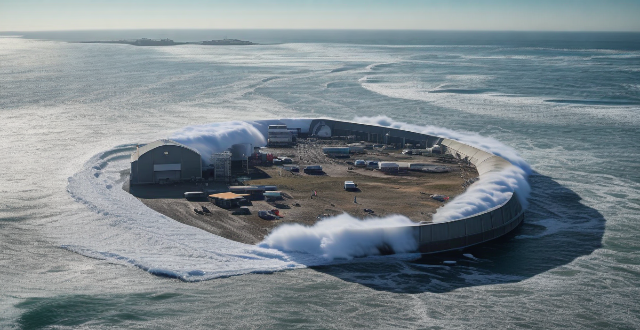
What is a climate refugee ?
Climate refugees are individuals who must relocate due to environmental changes from climate change, such as sea-level rise and extreme weather events. This displacement affects social structures, economies, and cultures, and there is a need for international cooperation and sustainable practices to address the issue. There is currently no specific legal status for climate refugees under international law.
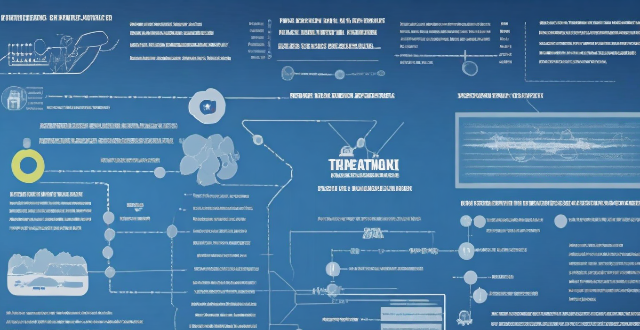
How do international climate agreements influence national climate policy assessments ?
International climate agreements influence national climate policy assessments by setting global goals and targets, providing guidance on best practices, facilitating technology transfer and cooperation, enhancing transparency and accountability, and offering financial support for climate action. Examples of such agreements include the UNFCCC, Kyoto Protocol, and Paris Agreement.
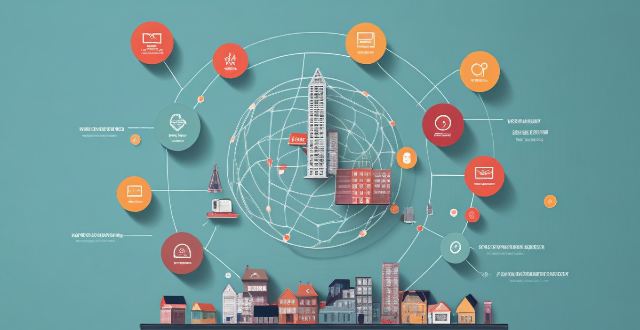
What is the significance of climate finance in achieving the goals of global climate governance ?
Climate finance is vital for achieving global climate governance goals, supporting mitigation, adaptation, sustainable development, innovation, cooperation, transparency, policy integration, capacity building, and private sector engagement.

How can climate resilience help mitigate the impacts of climate change ?
Climate resilience is a crucial strategy for mitigating the effects of climate change. It involves reducing vulnerability, enhancing adaptive capacity, promoting sustainable development practices, and fostering social cohesion. By implementing these strategies, communities can become more resilient and better able to cope with the impacts of climate change.

What are the challenges and opportunities for developing countries in the carbon trading market ?
Challenges and opportunities for developing countries in the carbon trading market include lack of infrastructure, legal and regulatory hurdles, market access and information asymmetry, capacity building needs, economic growth and investment, technology transfer and innovation, environmental sustainability, policy influence and leadership.

What is climate financing ?
Climate financing is essential for implementing projects that mitigate climate change and adapt to its impacts. It includes public sector involvement, private sector participation, support from multilateral and bilateral institutions, and innovative mechanisms like climate taxes and crowdfunding platforms. These financial resources are vital in addressing the global challenge of climate change by enabling access to capital for sustainable initiatives.

How do climate summits contribute to global efforts to combat climate change ?
Climate summits play a crucial role in the global fight against climate change by setting targets and goals, encouraging international cooperation, promoting policy and technological innovation, raising awareness and mobilizing action, and financing climate action.

How can climate financing help developing countries ?
Climate financing is essential for developing countries to adapt to and mitigate climate change. It funds infrastructure projects, capacity building, renewable energy, sustainable land use, and research & development. These efforts help build resilient economies and reduce environmental impact.
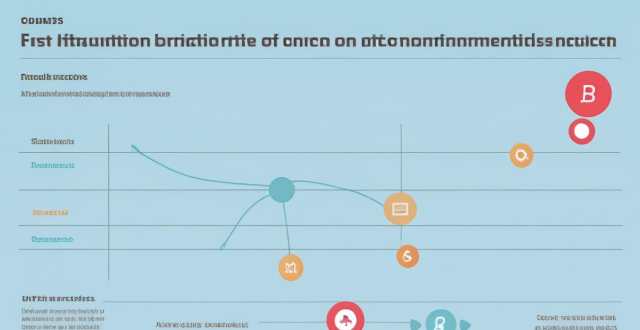
How can we use climate predictions to mitigate the effects of climate change ?
Climate predictions are vital in mitigating climate change impacts. They help in adaptation planning, guiding mitigation strategies, informing policy development, raising awareness, and driving research and innovation. By understanding future climate conditions, we can take proactive measures to reduce the effects of climate change on our environment and society.

How can we address the concerns of climate skeptics and promote climate action ?
The text discusses ways to address concerns of climate skeptics and promote climate action. It emphasizes the importance of understanding their concerns, providing accurate information, building trust in science, addressing perceived costs, and overcoming political beliefs. The author suggests using educational websites, scientific studies, news articles, economic analysis, job creation, efficiency measures, common ground, local impacts, and dialogue to counter misinformation and skepticism about climate change.

What are the risks associated with climate financing ?
Climate financing is vital for mitigating climate change but comes with economic, policy, environmental, social, reputational, and technical risks that must be managed through strong governance and legal frameworks to ensure effectiveness and credibility.